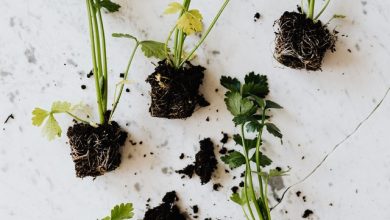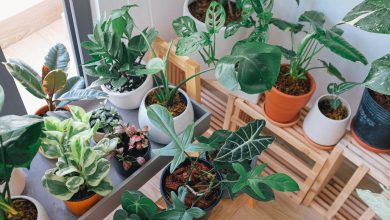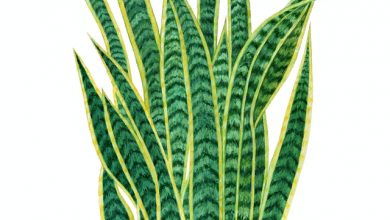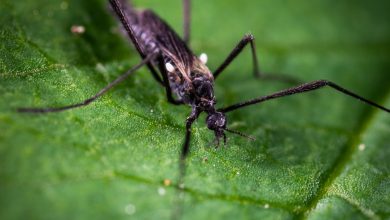Odd Gardening Tricks That Actually Work
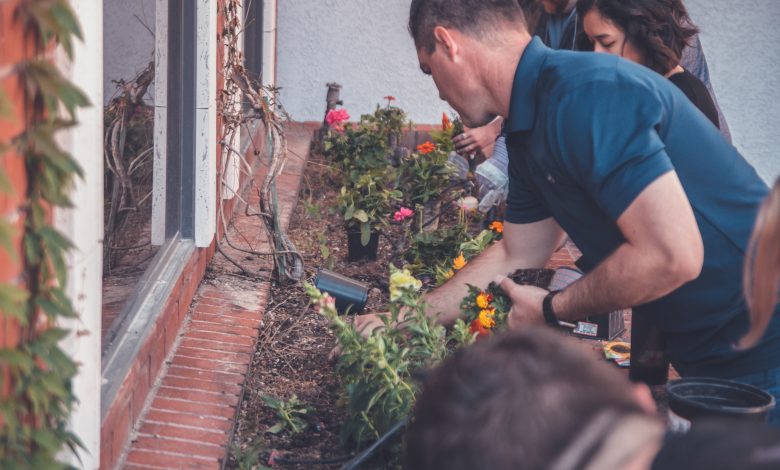
Planting a garden is only as difficult as you make it. If you prepare yourself with helpful knowledge, tools, and supplies, you are well on your way to sowing a beautiful bed that lasts season after season. As you become more experienced, it isn’t unheard of to look for tips and tricks to make the gardening process easier. These pieces of advice can come from books, fellow gardeners, or by chance. There are hundreds of tips that are well-known, but there are also some that are downright bizarre! While these odd tidbits may sound crazy, they really do work. The following list proves that some out of the box thinking may help make you a better gardener.
Bar Soap
Deer are gorgeous creatures, but they have no place in our gardens when we are trying to raise flowers and crops. They love to eat blooms and foliage and can destroy yards in a matter of minutes. If you live near these animals, you have probably seen them grazing on your beds alone and in packs. It doesn’t matter the time of day either. When deer are hungry, they need to eat!
If you are looking for a solution to keep the beasts at bay, you may have to go one step further from deer resistant plants. Another eco-friendly solution that works comes from using plain bar soap. Deer do not like the scent of soap and are known to keep away when they detect its presence. The stronger the smell, the better it works as a repellent.
You can either create bar shavings or use the full soap bar itself. If you choose to use shavings, get a plastic bag, and collect them in the sack. Then, sprinkle a thin layer of the soap around the perimeter of your garden bed and yard. Pay extra attention to where the deer usually gravitate to.
If you prefer to use a whole bar of soap, there are a few ways you can do so. You can tie long pieces of string or rope and hang the soap from your trees. As the wind picks up the scent, the deer know to stay away. You can also place the bars on wooden or metal stakes and place them around your yard.
Regardless of which method you use, you should notice your four-legged visitors staying entirely away from your garden. If the rain washes the soap away, you can replace it as you see fit.
Beer
Beer is easily one of the best supplies to have on hand when gardening. The yeast and sugars it contains do wonders for improving your outdoor plot. While it may sound odd, there are plenty of benefits to be had when you use this alcohol among your plants.
Compost Maker
For gardeners who are looking for a tried and true way to get their compost pile going, try adding a bit of beer to the mix. Take a bottle of brew, and combine it with four gallons of water and a cup of ammonia. Pour this liquid on top of your compost pile and mix.
This novel compost starter contains sugar, yeast, and nitrogen, which all help to expedite bacteria growth and decomposition. Continue to add your compost ingredients as usual. You should see your compost quality improve within a couple of weeks.
Insect Deterrent
If you have an earwig, snail, or slug infestation, grab a couple of bottles of beer. Leave the beer open and out of your fridge for a few hours until it becomes stale. You can also leave a few bottles out overnight. In the meantime, start digging shallow holes along the perimeter of your garden. Place bowls inside these holes, and begin pouring a few inches inside each container. Add a drop of dishwashing liquid and mix until you create a bubbly solution.
You’ve just created your slug and earwig bait. These crawling creatures can’t resist the smell and taste of this unique brew. They crawl to it, fall in, and drown before they know what is happening. When you collect a few of these intruders, throw the solution away and refill as needed.
Fly Traps
If you are planting vegetables and fruits, you may run into swarms of fruit flies from time to time. You can easily catch these small insects by using beer. By pouring stale beer in an empty two-liter soda bottle, you can create a trap that kills them almost instantly. Cut the bottle in half, and insert the top of the bottle into the bottom.
Tape the two parts together, and add a couple of inches of beer inside. You can place this container on your garden beds, window sills, picnic tables, and everything in between. The fruit flies are attracted to the yeast and smell and become trapped inside and eventually drown. You can catch hundreds of these insects this way.
Odd Numbers
For informal gardens, like those you find at home, you should plant in odd numbers. This planting secret helps you to have a beautiful bed of flowers and plants. Planting this way is visually appealing to humans. Psychologists have determined that decorating in odd number fulfills our desire for patterns and variation.
Backyard gardens don’t need complete symmetry, as most public gardens do. Planting in threes, fives, or sevens can fill your plots with beauty and splendor. Sow each group of plants no more than a couple of feet apart. Use different varieties of flowers and foliage to liven up your landscape. The impression this optical illusion creates is going to make your garden the envy of the neighborhood.
Use fillers in between the groupings of flowers to fill any remaining spaces. You can plant low ground covering ivy, vines, rocks, or mulch to complete the effect. With this gardening trick, you are soon going to realize the sky is the limit. There are so many ways to design your yard with this trick in mind.

Pepper
Are you trying to create a garden paradise that invites birds and other non-intrusive wildlife in your backyard? When you include water bowls, fountains, and bird feeders, you may be attracting more than you bargained. One pest, in particular, could take advantage of the available seed and food that is sitting undisturbed in your yard.
The squirrel is known to take off with birdseed by the cheek-full if you hang feeders and leave them unattended. The food that was meant for feathered creatures is now strewn about on the floor. Their carelessness makes an absolute mess of your yard and more headaches. There is something you can do to keep the unwanted visitors away – use pepper.
Bird pepper falls under the Capsicum genus plant and packs a wallop when squirrels ingest it. It doesn’t harm birds, but the squirrels can feel the heat as soon as they taste it. You can even use cayenne pepper in your birdseed for the same effect. When it comes to taste, birds do not have this sense. They lack the necessary brain receptors to differentiate what they are eating. Therefore, you can use as much as you need to keep the squirrels away.
Sprinkle pepper into the birdseed mix or grind the pepper with oil and spray onto the seed. As time goes by, make sure you still have plenty of pepper in the seed mixture. Rain and wind can wipe the deterrent away, so you may need to add more.
Plastic Soda Bottles
If you want to reuse supplies you have around the home to grow a garden, it can easily be done. Mini greenhouses are a neat activity you and your family can do together. As you start to get ready for the spring planting season, don’t throw away your plastic soda bottles.
Cut the bottles in half and create a few holes in the bottom for ventilation and drainage. Set the bottle end upright and fill partially with potting soil. You can start planting and cultivating your seeds and seedlings in the container before the ground outdoors thaws. By doing this process, you are already one step ahead of the gardening game.
If your seeds or plants prefer a higher humidity environment, include a clay pot with this method. Fill the pot with dirt, and sow your seeds like normal. You then place half of the plastic bottle over the clay container and place it in sunlight. Make sure to add appropriate water levels to keep the environment moist.
Coffee Filters
Coffee filters can be used for so much more than making brew. They break down easily and can be placed in your yard and used for a variety of things. Here are a few ways you can incorporate this thin paper into your gardening process:
Plant Transport
When it comes to gardening, they also make great liners when you are transferring potted plants. When you plant smaller flowers or succulents indoors, they can quickly outgrow their container. It is then necessary to move the plant to a bigger pot, but that can get messy.
This step is where the coffee filters come in. As you carefully remove the plant from its original container, you can now place it on the paper for easier transportation. The material helps to keep your flowers together, and there is no huge mess to clean up. When you are done with the filter, just add it to your compost pile to decompose.
Pot Liner
Coffee filters can also be used as liners for your clay or plastic pots. Place a filter inside and on the bottom of the container. The paper helps to stop dirt from falling through the drainage holes. Water can still get through the thin screen when you need to hydrate the plants.
Herb Wrapper
You can also use coffee filters when you want to dry your herbs. Once you cut the plants, place them directly on the paper. Wrap them tightly in the filter and tie the bundle together with a piece of string. Place the herbs in the sun to dry for a few days.
Eggshells
For gardeners who are struggling with their soil, there is help available. Your answer lies just behind your refrigerator door. Eggshells are a great way to add minerals to your dirt inexpensively. Take the shells and blend them into a fine powder. Take this, and spread it on top of the soil. Rake the eggshells into the dirt to thoroughly mix it in. The shells contain calcium, which helps to enrich the earth and make plant growth happen quickly.
Eggshells also keep slugs and snails away from your garden. Break some old shells and place them on the soil where they often frequent. While this tip is believed to work by many gardeners, some claim the shells do nothing. Many gardeners think the insects don’t like the sensation of crawling over the sharp matter. See if this trick works for you!

Pennies
We all have that drawer in our kitchen that is home to random pieces of junk and old pennies, but now you finally have a reason to use them. Pennies are a great help when it comes to keeping cut flowers fresh. When you place your garden flowers in a vase, you want to keep them around for as long as possible. Try putting a penny in the container before you place the blooms in the water.
The copper in the penny acts as a bacteria and fungus eliminator. As it sits in the water, it fights off enzymes that mold and fungus need to grow. The result is no more molding of your stems and leaves.
Pennies can also be used to repel slugs from your garden. Make a penny ball by hot gluing the coins onto a Styrofoam ball. When the glue is completely dried, grout the ball with sand. Clean and shine the pennies while the sand dries. Place the completed ball near areas where you find slugs, and watch them disappear!
Rubber Tires
Rubber tires are a unique way to freshen up the look of your garden instantly. You can use it as a planter and place it anywhere in your yard. Before you start planting, there are a few steps to take to get the tire ready:
- Use a knife or blade to cut off the outer rim of the tire. Be very careful when doing this step so you don’t cut yourself. Gloves may help you get a better grip on your knife handle.
- Turn the newly cut tire inside out. The easiest way to do this is to have someone hold on to a portion of the tire. You can then do the twisting.
- The tires can be placed one on top of another if you want a taller planter in your garden. Get creative with this step!
- Fill your new rubber planters with soil. You can now plant your seeds or seedlings how you wish. Since there is no bottom, watering the plants is a breeze, and any runoff is going to seep out the sides.
If you really want to show your creative side, get some paint and decorate your new planters. Bright colors work well in a flower garden, and the tires can now become a focal point in your yard. When you grow tired of your handiwork, you can always change it to match your style or mood.
Wine Corks
Planting your flowers and crops in straight lines isn’t as easy as it sounds. If you struggle with keeping your rows straight, you can use wine corks to help you out.
- Collect your corks and find a long plank of wood.
- Use a ruler to mark a straight line down the middle of the piece of lumber.
- Then, drill a few holes big enough for a cork to sit in along the path that you just drew.
- Take your wine corks, and insert them into those holes.
- Once they are all secure, take the plank of wood, and gently press your new contraption into the soil. You can now use the fresh marks to guide you when you are making your holes for your plants.
Fish
Fish can help keep mosquitoes at bay if you are collecting water in rain barrels. These winged insects are known to lay hundreds of eggs at a time in standing water. As a result, you have a complete mosquito infestation in a matter of weeks. The swarming lasts all season long until a cold snap kills them off.
Place a few goldfish in your barrels to help counter this annoyance. The fish eat the bugs and their larvae. Just remember to place some sort of netting over the rain barrel so birds aren’t tempted to feast on your fish.
Dish Soap
Dish soap can work wonders for your soil. Often, when dirt becomes too hard from dryness, it is going to repel water instead of attracting it. If your land has become hard to manage because it is quick to dry, try using this soap when you are watering. All it takes is a teaspoon of the dishwashing liquid mixed into your watering can.
The soap breaks down any oils and other particles in the soil that make absorption difficult. After a few minutes of watering, you are going to notice your dirt is finally holding on to the hydration. Be careful when using this solution. The soap also removes oils from leaves and stems. This film is protection for the plants, and they need the oil to grow properly.
Baking Soda
If you have a vegetable garden, you know how fulfilling it is to eat from your garden. Popular plants like tomatoes are easy to grow when properly maintained. If you have tried in the past to cultivate these delicious treasures but have found them to be bitter, you can use some baking soda to sweeten them up!
Before the vines start to show the tomatoes, sprinkle a tablespoon or two of baking powder around the base of the plant. The bicarbonate works with the soil to make your vegetables become the best you have ever gotten your hands on. Stock up on a few boxes of baking soda to get you through the full tomato growing season.
Cinnamon
Cinnamon is an effective way to deal with unwanted mold and mildew. This decay can quickly happen when you garden in damp areas or try to raise seedlings to transplant into your beds. When you spot the mold, sprinkle some of the spice all over the infected plants. Cinnamon has antimicrobial properties that help to stop future mildew growth.
You can also sprinkle cinnamon on your soil to deter small bugs from eating your plants and leaves. There are dozens of insects like ants and aphids that don’t appreciate the strong smell cinnamon gives off.
